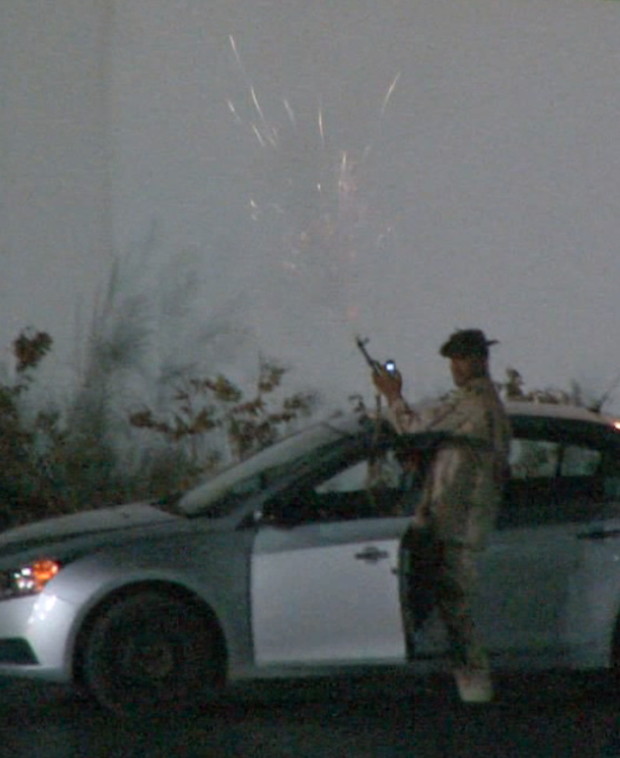Freedom of the Press? Libya Says 'Not Ready'
by CBS News' John Bentley
TRIPOLI - Gunfire erupts almost nightly in front of the hotel western journalists are required to stay at while reporting here. It is not aimed at anyone in particular; rather, it is usually AK-47's pointed up in the air in a show of both defiance and warning. Defiance of the continual bombing raids from NATO, and a warning to the journalists reporting on them - Muammar Qaddafi's regime keeps a tight lid on what can be seen and heard by outsiders, and that lid is enforced by both official government minders and armed citizens sympathetic to Qaddafi's cause. Maintaining this media blackout is Moussa Ibrahim, Qaddafi's spokesman. A member of the same Qadhadhfa tribe as the Libyan president, Ibrahim is the regime's mouthpiece. He enjoys talking about how he was educated in England ("I know every street in London," he boasted to Britain's Sky News) and pays a great amount of lip service to democratic ideals. "We all know that we need to change, and the freedom of the press is just an element of the change," Ibrahim said recently. "I accept the idea that the press need as much freedom as possible to report freely." Special Section: Anger in the Arab World But in practice, press freedom is almost non-existent in Tripoli. Reporters are forbidden to leave the grounds of the Rixos Hotel for reporting purposes without a member of the Ministry of Information. The lucky ones who do get out and are caught are thrown out of the country; the unlucky ones are beaten and subjected to a mock execution.Ibrahim justifies this crackdown on the press by saying that the Libyan culture doesn't understand the media's role. "Libya is not ready for a free press," Ibrahim said when asked why reporters can't leave the hotel on their own, adding that the civil war here has stopped the democratic changes that were allegedly right around the corner. "To ask us to now come at a time of war to just let journalists free and not be able to guarantee their security is absurd for me."
Qaddafi slams NATO "murderers"But many areas of Libya appear capable of letting reporters do their jobs without government interference. In the rebel controlled city of Benghazi, reporters are allowed to travel freely, both at the front lines of battle and in the streets. They come and go as they wish, and are not required to have a member of the National Transitional Council with them whenever they set foot outside the hotel.
The larger problem, however, is the stories journalists here aren't able to tell. Stories about those sympathetic to the rebels but too afraid to stand up because of Qaddafi's history of torturing and killing his own people, stories about women and children being used as human shields against attack, stories of weapons hidden in mosques and playgrounds so NATO won't destroy them. These are all stories reporters have had whispered to us, but are unable to prove because of the dictatorial regime. While Qaddafi's Libya may be dangerous for journalists, it is deadly for its citizens.
"We were leading a process of political change, including more freedom of the local and international press in the country prior to the events that took place in Libya in February," Ibrahim maintains, blaming his country's four decade suppression of free speech on the uprising four months ago. "This process was interrupted by the violent rebellion that took place in February."
It has become a standard line among crumbling dictatorships to tell the world that their country is not ready for democracy, and the freedoms that come with it, as a last ditch effort to try and maintain their grip on power. But as Libya's neighbors Tunisia and Egypt have shown, democracy can take hold whether the countries are ready for it or not. And that's not something Moussa Ibrahim, or Qaddafi himself, will be able to explain away.
